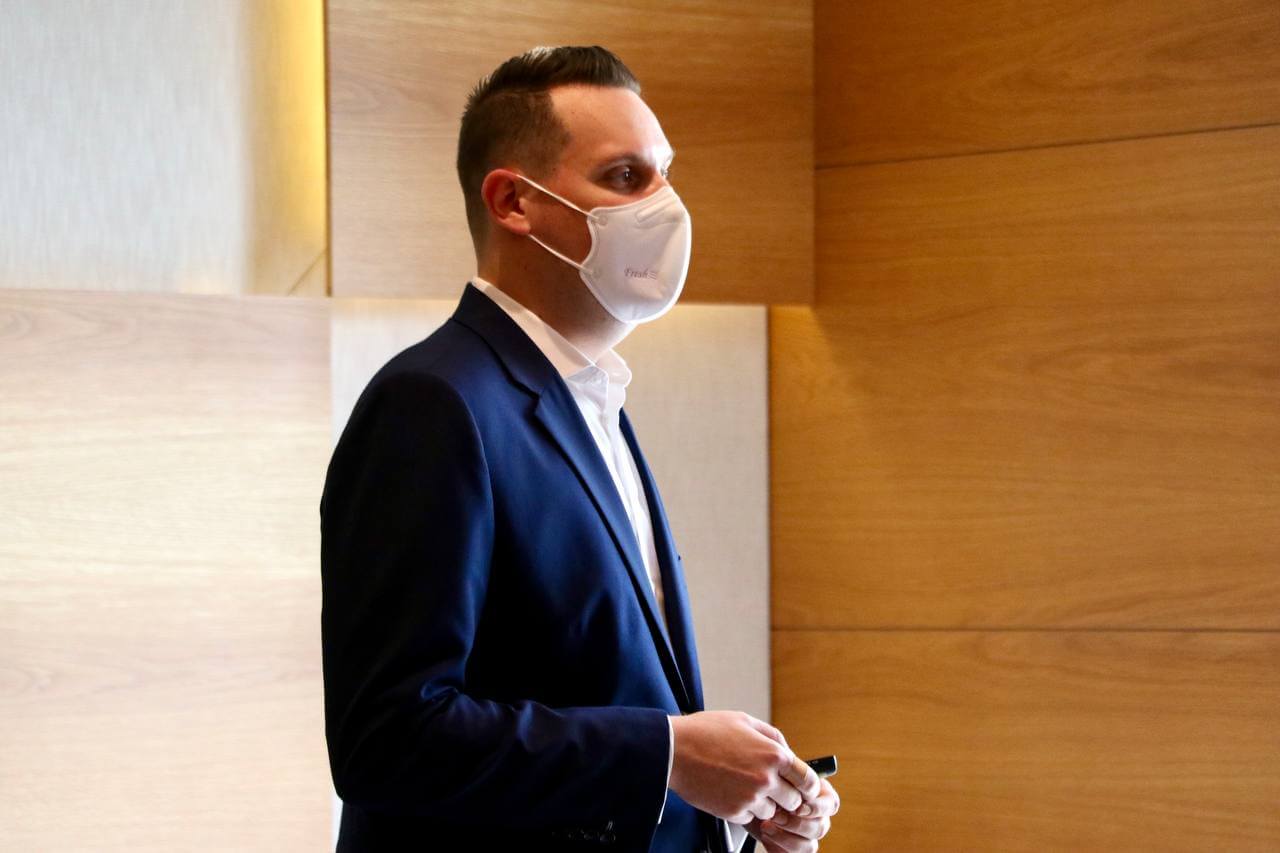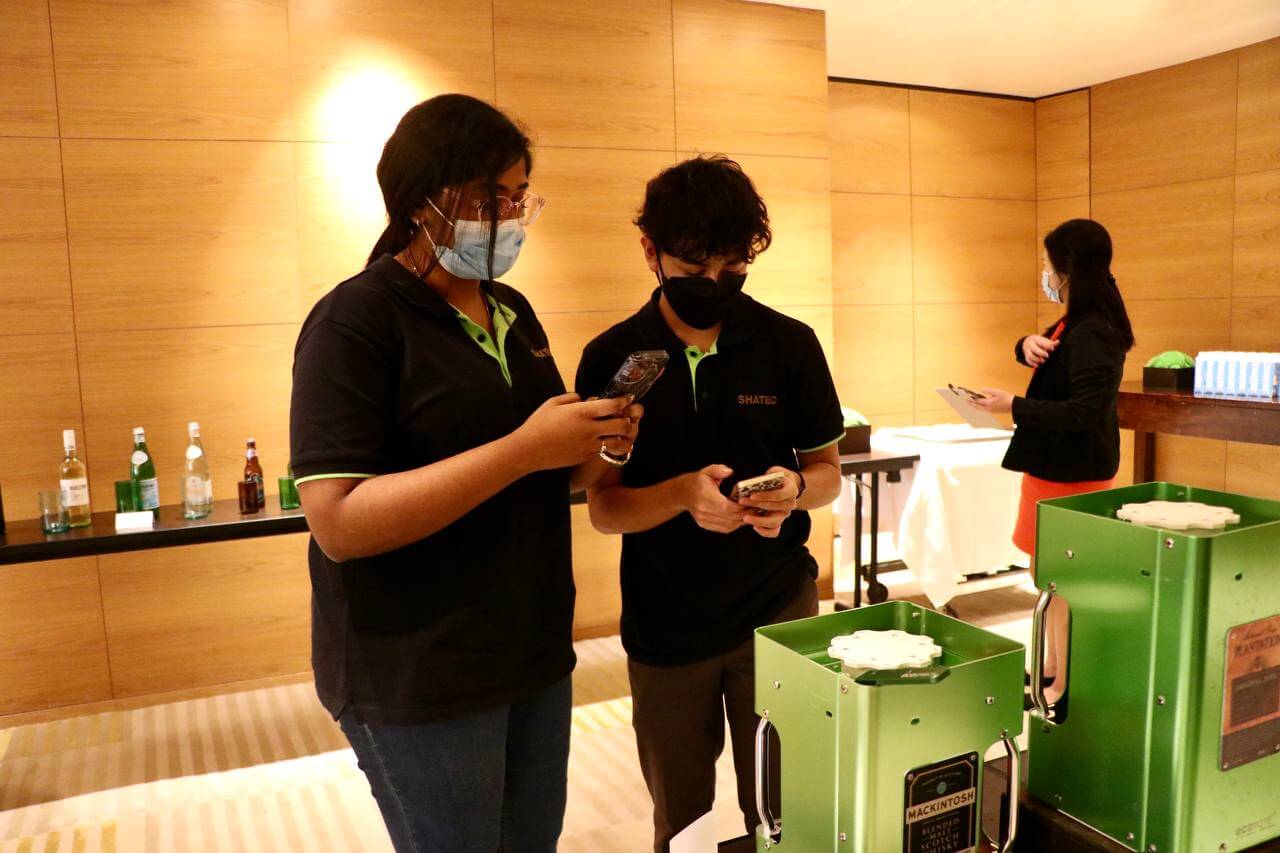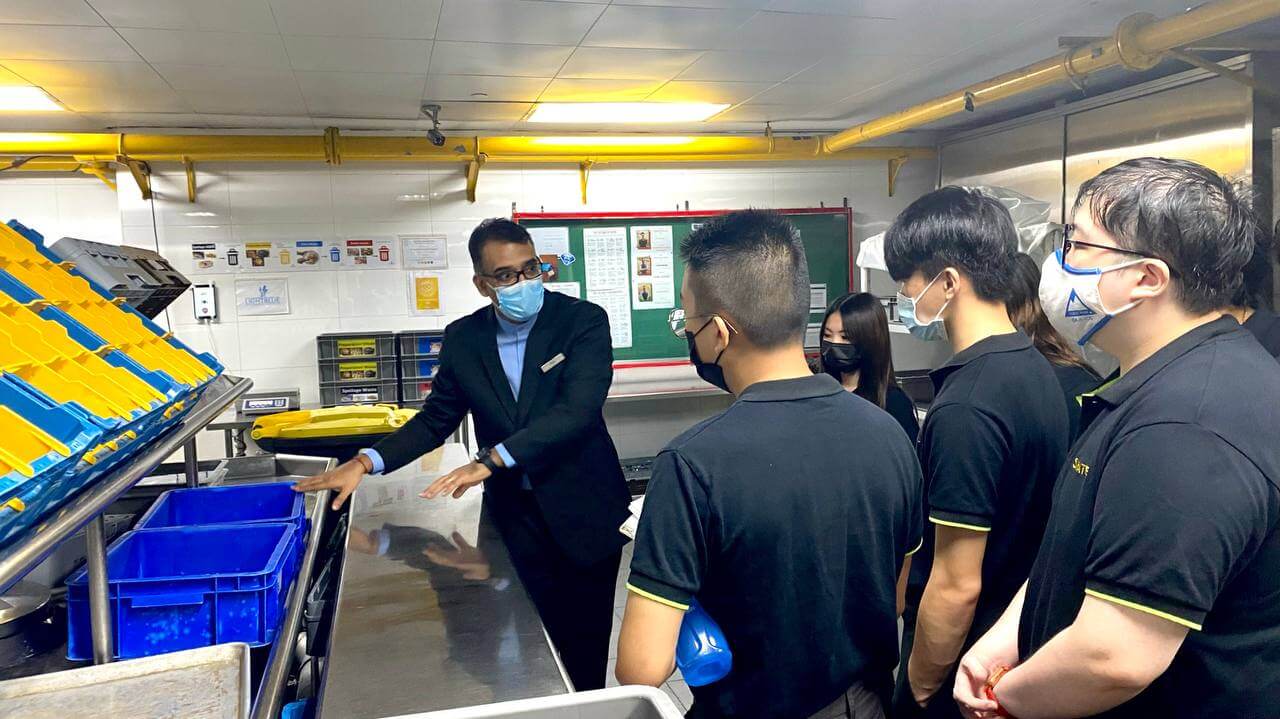On 2nd June 2022, hospitality students from WSQ Diploma in Hotel and Accommodation Services (DHA-05-22A & DHA-05-22B) toured Grand Hyatt Singapore before it heads into a hotel-wide renovation till early-2023!
A frontrunner in their sustainability commitment among Singapore hotels, Grand Hyatt showcased sustainable guest-facing products, shared their initiatives and took students behind the scenes to preview one of their circular solutions. Food waste generated in the hotel is sorted, then slingshotted into a waste management plant in the basement which converts the food waste into organic pathogen-free fertiliser for the rooftop herb garden!
Other sustainability initiatives introduced during the visit include:
Hotel Infrastructure
- On-site Trigeneration Plant generates 30% of hotel’s electricity needs – the gas-fuelled system converts its waste heat to generate steam, power and cooling energy for laundry and air-conditioning needs.
Facilities
- Water reduction practices – each dishwasher comprises three tanks to provide three separate rinses; at designated times, water from the last rinse is diverted into the first tank for greater water efficiency.
In-Room Features
- Geo-tagged room service trolleys for retrieval – enhancing guest experience and increasing staff efficiency with a tracking system embedded on room service trolleys.
Food & Beverage
- More than 80% of its organic vegetable supply come from Cameron Highlands co-op farm – reducing carbon footprint significantly as compared to using air-flown supplies.
- 80% of its seafood supply is certified sustainable – the hotel plays a role in ensuring biodiversity and ethical sourcing, having removed use of seafood like bluefin tuna (endangered), shark’s fin and softshell crab.
- Upcycled chefs’ aprons with recycled plastic bottles – About 7 used PET water bottles per apron.
On 2nd June 2022, hospitality students from WSQ Diploma in Hotel and Accommodation Services (DHA-05-22A & DHA-05-22B) toured Grand Hyatt Singapore before it heads into a hotel-wide renovation till early-2023!
A frontrunner in their sustainability commitment among Singapore hotels, Grand Hyatt showcased sustainable guest-facing products, shared their initiatives and took students behind the scenes to preview one of their circular solutions. Food waste generated in the hotel is sorted, then slingshotted into a waste management plant in the basement which converts the food waste into organic pathogen-free fertiliser for the rooftop herb garden!
Other sustainability initiatives introduced during the visit include:
Hotel Infrastructure
- On-site Trigeneration Plant generates 30% of hotel’s electricity needs – the gas-fuelled system converts its waste heat to generate steam, power and cooling energy for laundry and air-conditioning needs.
Facilities
- Water reduction practices – each dishwasher comprises three tanks to provide three separate rinses; at designated times, water from the last rinse is diverted into the first tank for greater water efficiency.
In-Room Features
- Geo-tagged room service trolleys for retrieval – enhancing guest experience and increasing staff efficiency with a tracking system embedded on room service trolleys.
Food & Beverage
- More than 80% of its organic vegetable supply come from Cameron Highlands co-op farm – reducing carbon footprint significantly as compared to using air-flown supplies.
- 80% of its seafood supply is certified sustainable – the hotel plays a role in ensuring biodiversity and ethical sourcing, having removed use of seafood like bluefin tuna (endangered), shark’s fin and softshell crab.
- Upcycled chefs’ aprons with recycled plastic bottles – About 7 used PET water bottles per apron.

Marcus Tan
WSQ Diploma in Hotel and Accommodation Services
(DHA-05-22B)

Elfie Anaqi
WSQ Diploma in Hotel and Accommodation Services
(DHA-05-22A)
About Grand Hyatt Singapore
Embracing care at the heart of its business, Grand Hyatt Singapore is committed to protecting the planet for future generations by adopting a holistic approach towards sustainability and pioneering sustainable initiatives across multiple touchpoints in the hotel.
A journey that started in the early 2011 with the installation of the Trigeneration Plant, the hotel has since achieved waste and water reduction, better utilisation of resources and energy, and providing guests with greater value through sustainable dining and wellness.









